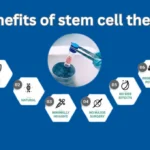
How to Generate Stem Cells? The Future of Medical Science
The quest for understanding and harnessing the power of stem cells has been at the forefront of biotechnological and medical research due to their potential to regenerate damaged tissues and treat various diseases. This article delves into the methods and technologies used to generate stem cells, exploring both the scientific processes and the ethical, regulatory, and practical aspects involved.
Understanding Stem Cells
Stem cells are unique in their ability to differentiate into various cell types in the body, from muscle cells to brain cells, making them integral to regenerative medicine. There are two main types of stem cells: embryonic stem cells, which can transform into any cell type, and adult stem cells, which have a more limited range but are less controversial.

Methods of Generating Stem Cells
| Extraction and Culture Techniques | Embryonic Stem Cells: Extracted from the inner cell mass of blastocysts, these cells require careful culturing in incubators using media that maintain their pluripotency. Adult Stem Cells: Found in tissues like bone marrow and fat, these are typically harvested using minimally invasive procedures. |
| Induced Pluripotent Stem Cells (iPSCs) | iPSCs are a groundbreaking development where adult cells are reprogrammed back into pluripotent stem cells using factors that induce a stem-cell-like state. This method sidesteps many of the ethical issues associated with embryonic stem cells. |
| CRISPR Technology | CRISPR/Cas9 gene editing is another avant-garde technique that has been adapted to improve the efficiency and precision in generating genetically modified stem cells for disease modeling and potential treatments. |
Regenerative Medicine Applications
Stem cells are the cornerstone for numerous applications in regenerative medicine, ranging from organ regeneration and therapeutic cloning to the treatment of chronic diseases such as Parkinson’s and diabetes. Clinical trials continue to explore these applications through stem cell therapy, under stringent regulatory scrutiny to ensure safety and efficacy.
Technological Advances and Bioreactors
The scaling up of stem cell production has been facilitated by advances in bioreactor technology, which allows for the controlled growth of stem cells in three-dimensional cultures, mimicking the body’s natural environment more closely than traditional two-dimensional culture systems.
Ethical, Legal, and Social Implications
The generation of stem cells, particularly embryonic stem cells, involves complex ethical and legal considerations. Regulatory frameworks are essential to balance scientific progress with ethical concerns, and these vary significantly across different countries.
Future Perspectives in Stem Cell Research
The future of stem cell research promises even more refined methods of generation and application, including the potential for entirely artificial organs grown from patient-specific cells. As technology and understanding of molecular mechanisms improve, the possibilities for using stem cells in medicine continue to expand.
Conclusion
Stem cell technology stands as one of the most promising and dynamically evolving areas of science. As researchers overcome ethical and technical challenges, the generation of stem cells will increasingly play a pivotal role in medicine, providing hope for countless patients worldwide.











Pingback: Foods That Generate Stem Cells - IRM Hospital
Pingback: Stem Cell Therapy vs Surgery: A Comprehensive Guide to Modern Medical Choices
Pingback: Exploring the Transformative Potential of Stem Cells in Medicine - IRM Hospital
Pingback: What is Collagen: The Essential Protein Powering Beauty and Health - IRM Hospital
Pingback: Future of Stem Cell Therapy in Pakistan - IRM Hospital
Pingback: Stem Cell vs Bone Marrow Transplant: Understanding the Differences
Pingback: Angiogenesis: The Vital Process of Blood Vessel Growth and Its Impact on Health - IRM Hospital